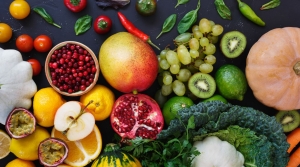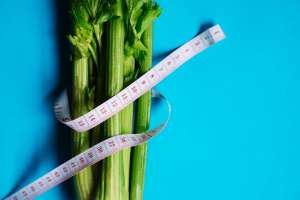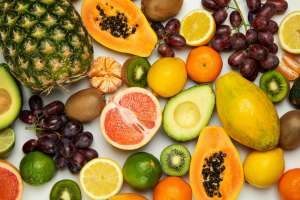Your food choices can be the difference between hitting a new personal best and hitting the wall. Whether you log miles on the treadmill, push weights in the gym, or flow through yoga, optimizing nutrition for exercise powers your performance and speeds recovery. In this guide, discover what to eat before exercise and how to build meal plans for post-workout refuels.
You will learn how to:
- Learn what to eat before exercise to fuel every workout
- Adjust macronutrients for endurance, strength, or mind-body sessions
- Recover faster with ideal post-workout meals and hydration
- Explore supplements and tech tools that refine your workout nutrition strategy
By tailoring your diet to the demands of each exercise type, you can boost energy, delay fatigue, and support muscle repair.
Ready to optimize your plate for peak performance? Let’s begin with the essentials of pre-workout nutrition.
Pre-Workout Nutrition Essentials
Choosing the right food before workout ensures steady energy and strong power output. Knowing what to eat before exercise helps you select fueling food that supports muscle health.
A balanced mix of carbohydrates, protein, and healthy fats preserves glycogen stores, stimulates muscle synthesis, and sustains endurance.
Key Nutrients to Fuel Performance
- Carbohydrates: A primary energy source in exercise nutrition. Muscles use glucose from carbs, stored as glycogen, to power moderate to high intensity workouts.
- Protein: A key part of workout nutrition, it stimulates muscle protein synthesis and improves recovery. Aim for 15 to 25 grams before resistance or endurance sessions.
- Healthy Fats: Best for longer, low to moderate intensity workouts when eaten 3 to 4 hours before exercise. They help maintain energy without spiking blood sugar.
Timing Your Pre-Workout Meal
2 to 3 Hours Before
Consume a complete meal with complex carbs, protein, and fats. Examples: a whole grain chicken sandwich or sweet potato with salmon and veggies.
1 to 1.5 Hours Before
Choose a smaller portion with easily digested carbs and protein. Options include Greek yogurt with berries or a nutrition bar.
45 to 60 Minutes Before
Opt for quick-digesting snacks to avoid fullness. Try a banana, oatmeal, or a light protein shake.
Sample Pre-Workout Foods
- Whole grain toast with peanut butter and banana
- Oatmeal topped with fruit and whey protein powder
- Greek yogurt parfait with honey and berries
- Smoothie with greens protein powder, spinach, and mixed berries
Nutrition Strategies for Different Exercise Types
Exercise and nutrition go hand in hand, yet each workout style has unique fueling demands. Different exercise modalities place specific stress on energy systems and muscle groups. Adapting your diet to match these demands helps optimize performance, delay fatigue, and support recovery.
Endurance/Cardio Workouts
Endurance activities rely heavily on glycogen and circulatory efficiency. For optimal nutrition for exercise, aim for 60–65% of daily calories from carbohydrates, 15–20% from protein, and 20–25% from healthy fats.
Pre and Intra-Workout Fuel
- Complex carbs 2–4 hours before: oatmeal, whole-grain pasta, or brown rice.
- Small snack 30–60 minutes before: banana, low-fat granola bar, or a slice of whole-grain bread with honey.
- During sessions over 60 minutes: sports drink, energy gel, or fruit to sustain blood glucose and delay fatigue.
Post-Workout Recovery
To restore glycogen and support muscle repair, focus on your post workout meal with a 3:1 carbohydrate-to-protein ratio. Sample options:
- Grilled chicken rice bowl with mixed vegetables
- Low-fat chocolate milk and a piece of fruit
- Smoothie made with Greek yogurt, berries, and spinach
Strength & Resistance Training
Muscle building workouts demand a higher protein intake and moderate carbohydrate support. For effective exercise nutrition, aim for a ratio of 40–50% carbs, 30% protein, and 20–30% fat to provide energy and raw materials for synthesis.
Protein Timing
Consume 20–30 grams of high-quality protein in your post workout meal or snack within 60 minutes after lifting. Ideal sources include:
- Whey or plant-based protein shake
- Greek yogurt with a handful of nuts
- Turkey or tofu on whole-grain bread
Macronutrient-Rich Meals
- Carbohydrates: sweet potatoes, quinoa, lentils
- Protein: eggs, lean beef, edamame
- Fats: olive oil, avocado, mixed nuts
Flexibility & Mind-Body Sessions
Lower-intensity workouts like yoga, Pilates, and tai chi focus on balance and recovery. Exercise and nutrition for these sessions call for a balanced macronutrient split of 50–55% carbs, 15% protein, and 30% fats to support endurance and joint health.
Hydration Focus
Drink 2–3 cups of water 2–3 hours before sessions and sip ½ cup every 15–20 minutes during practice. Coconut water or electrolyte-infused beverages can help maintain mineral balance.
Anti-Inflammatory Snacks
Choose light, nutrient-dense snacks to ease joint stress and support recovery:
- Mixed berries topped with chia or flax seeds
- Hummus with sliced bell peppers or cucumbers
- Turmeric and ginger tea or golden milk
Post-Workout Nutrition & Recovery
After training, your body enters recovery mode. Choosing the right food after workout influences adaptation, reduces soreness, and prepares you for the next session.
Importance of the Post-Workout Window
During workouts, muscles lose glycogen and break down proteins. Consuming carbs and protein within two hours after exercise supports muscle repair and glycogen replenishment. While early advice stressed a narrow 45–60 minute window for post workout meal, recent findings show this period can extend if you had pre-exercise fuel.
Ideal Macronutrient Ratios
Combining carbs with protein boosts insulin and speeds glycogen synthesis for your post workout meal. Aim for 3 parts carbs to 1 part protein or follow these guidelines:
- Endurance athletes: 0.4 g carbs per pound plus 0.1–0.2 g protein per pound each hour for the first four hours.
- Strength training: 20–40 g high-quality protein soon after your session and 0.5–0.7 g carbs per pound in total recovery meals.
Including some healthy fats does not slow recovery. Whole milk, eggs, or nut butters can be part of post-workout meals without harming protein synthesis.
Recovery Food Ideas
These post workout meals and snacks can fit a busy schedule:
- Grilled chicken with rice and veggies
- Salmon with sweet potato and greens
- Greek yogurt with berries and granola
- Protein shake blended with banana and spinach
- Cottage cheese with fruit and whole-grain crackers
Hydration & Electrolyte Balance
When planning nutrition for exercise, hydration is a key factor. Proper fluid intake maintains performance and prevents fatigue. Fluid needs change with workout intensity and duration.
Hydration Needs by Workout Intensity
- Low to Moderate (<60 minutes): Drink 2–3 cups (473–710 mL) of water 2–3 hours before exercise. Sip ½–1 cup (118–237 mL) every 15–20 minutes during.
- High Intensity or Long Sessions: Start with pre-hydration, then use fluids containing electrolytes to offset sweat losses and delay cramps.
Electrolyte Replacement Tips
- Sodium: Add 300–700 mg per liter of fluid for longer workouts.
- Potassium & Magnesium: Support muscle function. Include bananas, nuts, or specialized supplements.
- Post-Workout: Replenish 2–3 cups of fluid per pound of body weight lost.
Hydration Beverages and Timing
- Water: Best for shorter or lower-intensity sessions.
- Sports Drinks: Ideal for workouts over 60 minutes. They supply sodium and a small amount of carbohydrates.
- Consistency: Schedule fluids before, during, and after exercise to stay balanced and ready for the next session.
Supplements & Advanced Fueling Techniques
Supplements can support exercise nutrition by filling nutrient gaps and boosting performance. Always start with one ingredient to test your tolerance before combining.
Pre-Workout Supplement Guide
- Caffeine: 3–6 mg per kg of body weight 30–60 minutes before exercise. Avoid doses above 9 mg/kg.
- Beta-alanine: 3–6 g daily to buffer muscle acidity and delay fatigue.
- Creatine monohydrate: 3–5 g per day to support strength and recovery.
- Electrolytes: Sodium, potassium, and magnesium maintain fluid balance and nerve function.
Role of Protein Powders and BCAAs
- Whey protein: Fast absorption for post-workout muscle repair.
- Casein: Slow-digesting to support muscle recovery during rest.
- Plant-based blends: Combine pea and soy for a complete amino acid profile.
- BCAAs: Leucine-rich formulas can trigger protein synthesis and ease soreness. With 1.6–2.0 g/kg of protein per day, extra BCAAs are optional.
- Timing: Aim for 20–30 g of protein within 30–60 minutes after training.
Innovative Tools: Wearables and Apps
New tech takes guesswork out of fueling:
- Continuous glucose monitors track blood sugar swings to time carbs.
- Sweat sensors estimate electrolyte losses and suggest rehydration.
- Nutrition apps sync with wearables to log supplement doses and send fueling alerts.
- Real-time data helps fine-tune intake for endurance events and strength sessions.
Personalized Nutrition & Emerging Trends
Personalized nutrition merges genetic, phenotypic, metabolic, and microbiome data to tailor diets. Emerging tech helps optimize fueling for individual demands.
Tailoring Diet with Tech
Tech-driven platforms combine wearable metrics with AI algorithms for real-time meal plans. Continuous glucose monitoring and sweat sensors feed into apps that suggest macros and hydration needs. Precision platforms follow a four-step cycle:
- Collect personal data (genetics, metabolism, lifestyle)
- Translate data via AI-driven meal recommendations
- Apply behavior support (goal setting, feedback)
- Measure outcomes and refine the plan
Gut Health for Optimal Performance
Your microbiome influences energy metabolism and inflammation. Personalized gut-health protocols use fecal profiling to guide prebiotic and probiotic regimens. Athletes can target fiber and fermentable substrates to support gut diversity. Early studies show tailored synbiotic plans may improve recovery and reduce GI distress.
As precision nutrition evolves, integrating genetic testing and gut diagnostics will refine diet strategies for stronger performance and faster recovery.
Conclusion
Optimizing your diet for each type of exercise helps you fuel smarter, recover faster, and make steady progress. Key takeaways:
- Plan your food before workout with the right mix of carbohydrates, protein, and fats based on timing and intensity.
- Tailor your nutrition for exercise: high carbs for endurance, extra protein for strength, and a balanced split for flexibility sessions.
- In your post workout meal, restore glycogen and support muscle repair with a 3:1 carbohydrate-to-protein ratio.
- Prioritize hydration and electrolyte balance before, during, and after exercise to maintain performance.
- Use supplements like caffeine, creatine, and protein powders to complement your workout nutrition strategy.
- Leverage tech tools and personalized nutrition data to refine exercise and nutrition plans for your unique needs.
Fuel smart, train well, and see gains in every session.






